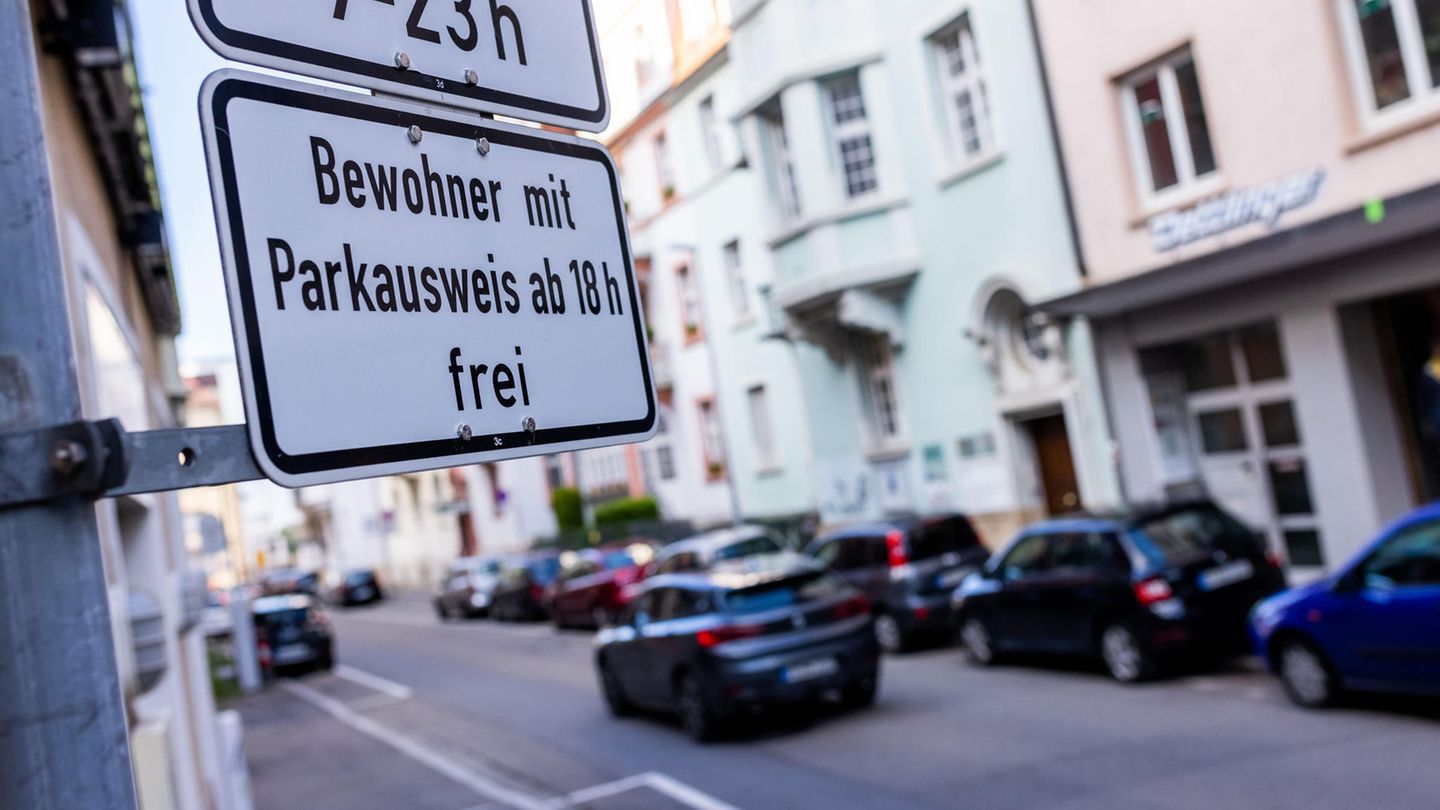Parking space in city centers is in great demand. But there are big differences in the prices that residents in particular pay for a parking space near their home. The German environmental aid is now making a drastic proposal.
Anyone who parks near their home will soon have to pay significantly more – at least if the German environmental aid has its way. The association demands from the federal states and cities that the fees for resident parking nationwide increase to at least 360 euros per year. In many places, huge SUVs are still likely to deliver public space for a few cents a day.
Many states and municipalities slowed down “reasonable fees” for resident parking – and with it the mobility turnaround. Fees must be so high that people who are not dependent on their car question their car ownership.
In many residential areas, especially in large cities, parking is only permitted with a resident parking permit. Residents should be able to walk to their homes.
Compared to the cost of bus and train tickets, a fee for resident parking permits of at least 360 euros per year is still low, says the German Environmental Aid (DUH). A query by environmental aid revealed that only five states allowed local authorities to charge “reasonable fees” for resident parking permits. The results were available to the German Press Agency. Municipalities such as Erfurt, Cologne and Stuttgart would have the option of charging higher fees, but would still not do so, according to the DUH.
Resident parking: Higher fees for SUVs and pickups?
The environmental aid sees regulations in Freiburg and Tübingen as role models. In Freiburg, an average fee of 360 euros per year is planned. According to the DUH, 480 euros per year are due for particularly large SUVs and pick-ups. Tübingen demands an annual fee that is 50 percent higher for particularly heavy “city tanks” than for small cars – namely 180 euros.
In mid-2020, the Bundestag and Bundesrat overturned a nationwide upper limit for resident parking permits of EUR 30.70 per year – since then, states and municipalities have been able to regulate the fees for urban districts with a significant lack of parking space. The state governments can enact fee schedules for this purpose.
“Public space is scarce and increasingly contested,” says DUH Federal Managing Director Jürgen Resch. “Every year, the number of cars registered in Germany increases by half a million. At the same time, the cars registered are getting longer, wider and heavier. Nevertheless, residents in most cities are allowed to drive their huge SUVs and pick-ups for only 8 cents block the public space every day.”
In Stockholm, a resident parking permit costs 1300 euros per year
According to the DUH, this is only a fraction of the fees charged in many cities abroad. The Agora Verkehrswende think tank also believes that resident parking spaces in Germany are too cheap. “The fees reflect neither the costs nor the actual benefit,” says a paper presented in January. A resident parking permit in Stockholm, for example, costs around 1,300 euros a year.
The German Environmental Aid distributed green, yellow and red cards to federal states. Five federal states received a green card: In Baden-Württemberg, Hesse, Lower Saxony, North Rhine-Westphalia and Thuringia, cities are allowed to charge reasonable fees for resident parking. Bavaria, Brandenburg, Saxony-Anhalt and Schleswig-Holstein received a red card – these states have not yet decided whether they want to give their municipalities more options.
According to the DUH, all other federal states – Berlin, Bremen, Mecklenburg-Western Pomerania, Rhineland-Palatinate, Saarland and Saxony – stated that they are planning a new parking fee regulation, but are currently still discussing the design. There was a yellow card from the environmental aid. The regulation has already been adjusted in Hamburg, but the annual fee of EUR 65 is still unable to have any steering effect. Therefore, Hamburg also got a yellow card from the environmental aid.
In the capital Berlin, the coalition agreement between the SPD, the Greens and the Left Party states that by 2023 at the latest, the fees for the resident parking vignette should rise to 10 euros a month. A resident parking permit currently costs EUR 10.20 per year.
Source: Stern
I am a 24-year-old writer and journalist who has been working in the news industry for the past two years. I write primarily about market news, so if you’re looking for insights into what’s going on in the stock market or economic indicators, you’ve come to the right place. I also dabble in writing articles on lifestyle trends and pop culture news.




